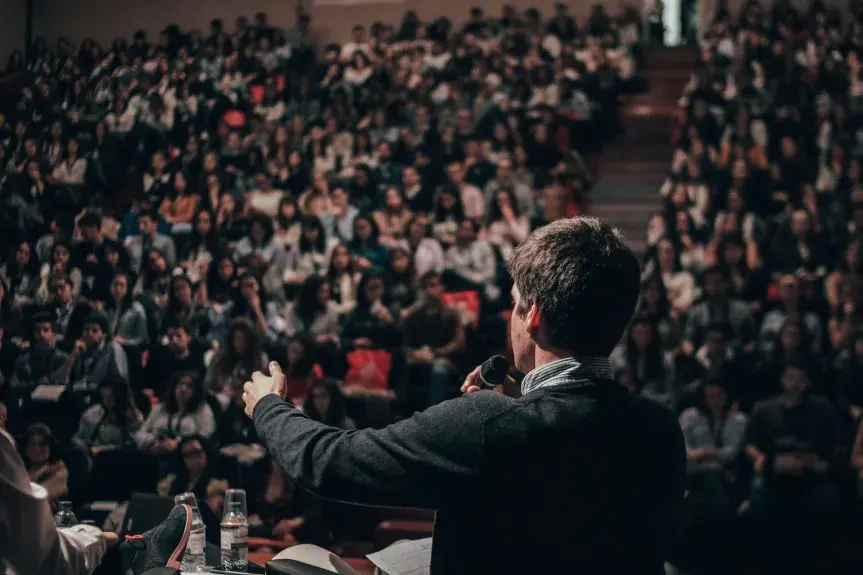
Sorbonne Université (Centre d’histoire du XIXe siècle ; Centre Roland Mousnier – UMR 8596 ; HDEA).
En partenariat avec AGORA (Cergy Pontoise), le CREA (Paris-Nanterre), CREW (Paris 3-Sorbonne Nouvelle), l’Institute of Historical Research (Londres), l’Institut universitaire de France et le LARCA-UMR 8225 (Université de Paris). (Yann Béliard, Fabrice Bensimon, Myriam Boussahba-Bravard, Emmanuelle de Champs, Jean-François Dunyach, Stéphane Jettot, Frédérique Lachaud, Arnaud Page, Sandrine Parageau)
Les séances ont lieu, sauf indication contraire, le jeudi de 17h à 18h30 à la Maison de la Recherche de Sorbonne Université (28 rue Serpente, Paris 6e), salle D421–
Jeudi 26 septembre : Chris Fletcher (CNRS), "Les masculinités et la difficile émergence d'une culture politique publique : Angleterre, XIIIe siècle".
Jeudi 3 octobre : Anne Curry (Southampton), "Les rôles gascons, Henri V et le traité de Troyes".
Jeudi 10 octobre : Jacinthe de Montigny (Québec – Trois Rivières), "La perception du Canada dans la presse anglaise et française au midi du XVIIIe siècle (1739-1763)".
Jeudi 17 octobre : Cesare Cuttica (Paris 8), “Democracy in Early Modern England. A Challenge Then and a Challenge Now”.
Jeudi 24 octobre : Lina Weber (St Andrews) "Political economy after Enlightenment. The case of Dugald Stewart".
Jeudi 7 novembre : Elise Smith (Warwick), à propos de son ouvrage à paraître Skulls, Nation and Empire: The Rise and Fall of British Craniology, 1800-1939 (Cambridge UP).
Jeudi 14 novembre : Pierre Purseigle (Warwick / IEA Paris Seine), “Reparation, reconstruction, and remembrance. The reconfiguration of the transatlantic alliance in the aftermath of the First World War”.
Jeudi 21 novembre : Sheila Rowbotham (Manchester), “Memories of the beginnings of Women’s Liberation groups in Britain in 1969”.
Jeudi 28 novembre : Dr. Jackie Uí Chionna (National University of Ireland, Galway), “Family Networks in the Revolutionary Generation: The Ryans of Tomcoole, A Case Study”.
Jeudi 5 décembre (salle D040) : Alvin Jackson (University of Edinburgh), “Opposing Home Rule: Irish Unionists, their ideas and strategies (1886-1914)”.
Jeudi 12 décembre : Jane Humphries (All Souls, Oxford), “History from Underneath: Girls and the Industrial Revolution”.
Jeudi 19 décembre : Malcom Walsby (Lyon): "Made in France. La Grande Bretagne et l'industrie française du livre à la Renaissance".
Jeudi 30 janvier (salle D040) : Projection du documentaire de la BBC "A House through time" (David Olusoga, 2018), sur l’histoire d’une maison de Liverpool depuis 1840, suivie d’une brève discussion sur les sources nouvelles pour l’histoire des individus.
Jeudi 6 février : David Rundle (University of Kent), “Humanism in fifteenth-century England and the Continent: vectors of travel”.
Jeudi 13 février : Marion Leclair (Arras), "Quels lecteurs pour le roman radical anglais ? (1780-1850)".
Jeudi 27 février : Steven O’Connor (Sorbonne Université) : “‘This French force must be an asset and not a liability’: the British approach to coalition warfare during the Second World War”.
Jeudi 5 mars : Stéphane Jettot (Sorbonne Université) : "La commercialisation des généalogies britanniques au 18e siècle".
Jeudi 12 mars : Florence Sutcliffe-Braithwaite (University College London): “"Something changed, I'm sure it did, for women; it must have": Feminism, equality, and individualism in working-class families in Britain's coalfields after 1945”.
Jeudi 19 mars : Aude de Mézerac-Zanetti (Lille), "'Ceci n'est pas une Réforme’ : les changements liturgiques sous le règne d'Henri VIII".
Jeudi 26 mars : Ben Griffin (Girton College, Cambridge), “The gender order and the judicial imagination: masculinity, liberalism and governmentality in modern Britain”.
Jeudi 2 avril : Sandrine Parageau (Nanterre / IUF), "‘Que sçay-je?’ Une histoire de l'ignorance dans l'Angleterre de la première modernité".
Jeudi 23 avril : Martha McGill (Warwick) : “Ghosts and national identity in long-eighteenth-century Scotland”.
Jeudi 30 avril : Marie Ruiz (Université de Picardie Jules Verne, Amiens), "Les stratégies genrées des sociétés d'émigration et des centres de formation dans l'Empire britannique".
Jeudi 7 mai : Gareth Curless (Exeter), “Labour, Decolonization and Class: Remaking Colonial Workers at the End of the British Empire”.
Jeudi 14 mai : Ariane Mak (Université de Paris), “Arrested on suspicion of spying. Mass-Observation investigators and the perils of wartime surveys”.
Le séminaire est ouvert aux étudiants de master et doctorat, ainsi qu’à toutes les personnes intéressées. Le plus souvent, le texte de la communication est disponible deux semaines à l’avance sur simple demande.